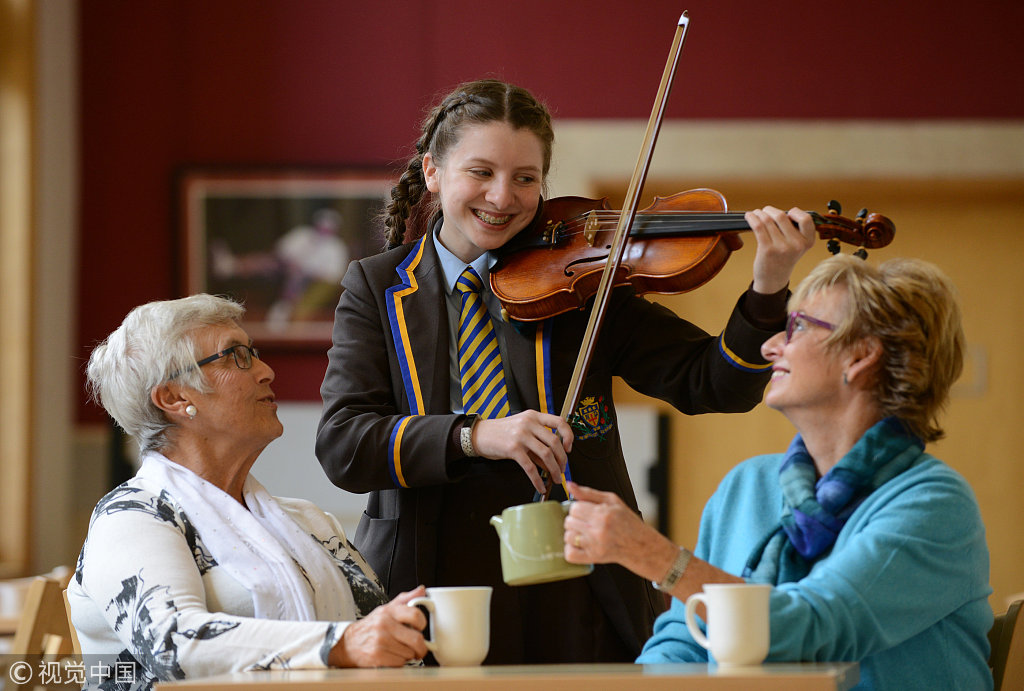Britain a nation of young music-makers, survey reveals


Poll finds sharp rise in popularity but highlights challenges
Britain is undergoing a resurgence in music-making among young people after a new survey revealed more than two-thirds of British children to be active musicians, a big rise compared to a decade ago, and especially amongst those from lower-income backgrounds.
Charity Youth Music and Ipsos Mori polled more than 1,000 British children aged between seven and 17 about their music habits.
The results reveal that 97 percent of responders had listened to music in the previous week and 67 percent had also engaged in "some form of music-making activity". This is a big rise from 39 percent in 2006, when Youth Music did its previous survey.
Among those who said they made music, singing was the most popular activity, with 44 percent saying they did so, compared with 17 percent in 2006.
Thirty percent of surveyed children played an instrument – 39 percent of whom said they are somewhat self-taught – with the piano proving most popular. Eleven percent made music on a computer – rising to one in five young men – while fewer than 10 percent rapped or DJ'd.
Music-making tends to fall off as children get older – 79 percent of children aged seven to 10 made music but that figure dropped to 53 percent of those aged 16 and 17.
Income affected the findings as well: 76 percent of children entitled to free school meals described themselves as musical, versus 60 percent of those not entitled. Activities including rapping, DJing, writing and making music digitally, rather than involving conventional instruments, were all markedly higher among children from lower-income backgrounds.
The research comes as enrolment in music qualifications is in decline, with the number of schools offering music at A Level, the exam taken in the final year of schooling, falling by 15 percent in the last two years. Also, 60 percent of schools reported that the introduction of the English baccalaureate, or Ebacc, was having a negative impact on music education.
Matt Griffiths, the CEO of Youth Music, said the survey highlighted some of the access problems young people encountered around music.
"While we might have online access to more music than ever before, we still can't afford to go to that festival, be a regular gig-goer, rehearse with a band or afford to buy that instrument we've always wanted," he said. "And if we're at school, it's getting increasingly more difficult to access music in the curriculum where its importance is in many cases being downgraded.
"Public music education funds should be targeted towards those who face greatest barriers to access", he added, saying "those involved in supporting young people's wellbeing should give greater consideration to the role that music can play, and how young people's passion for listening to music and their everyday creative lives can be interwoven with wider strategies to support good mental health."

































